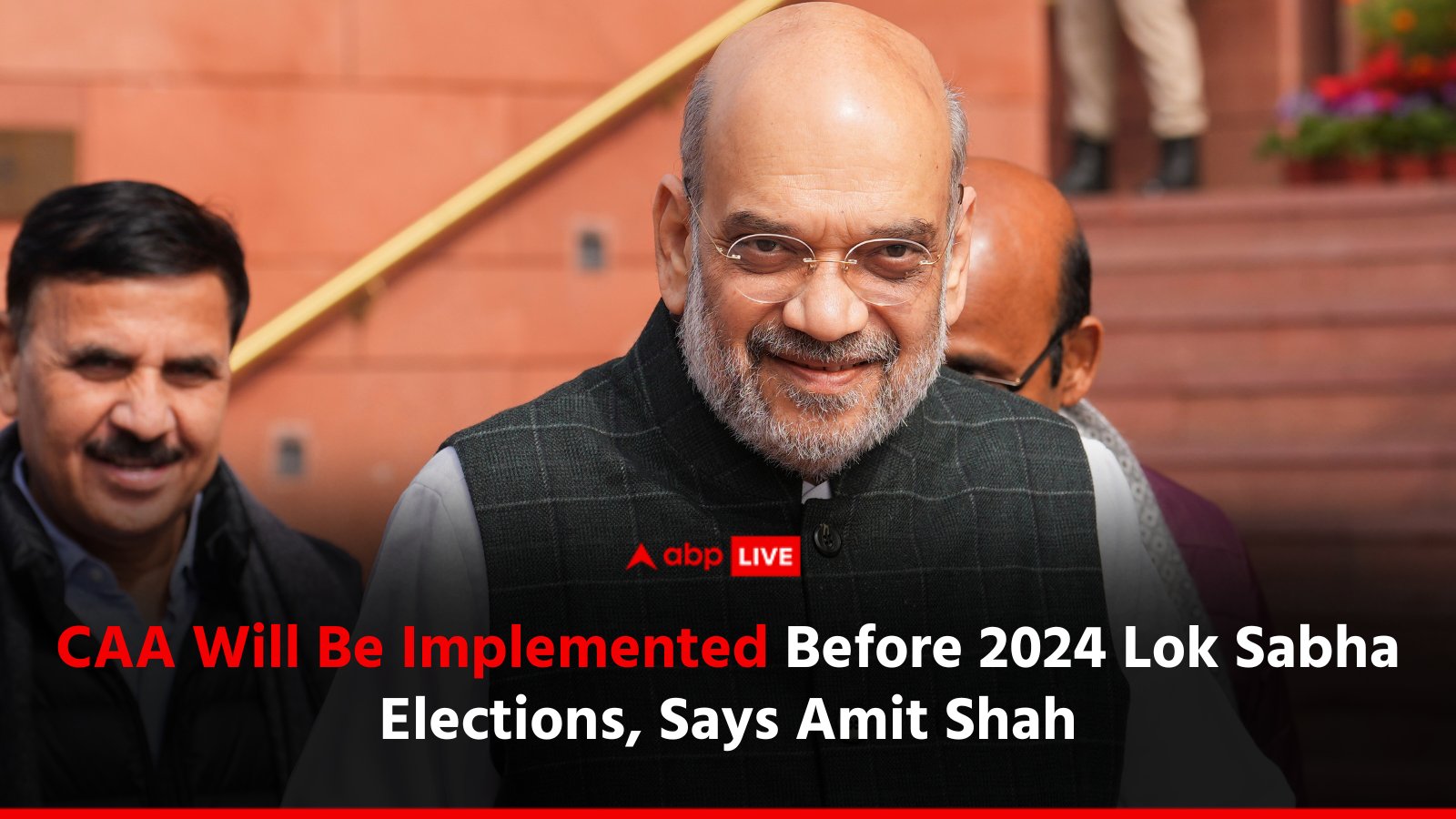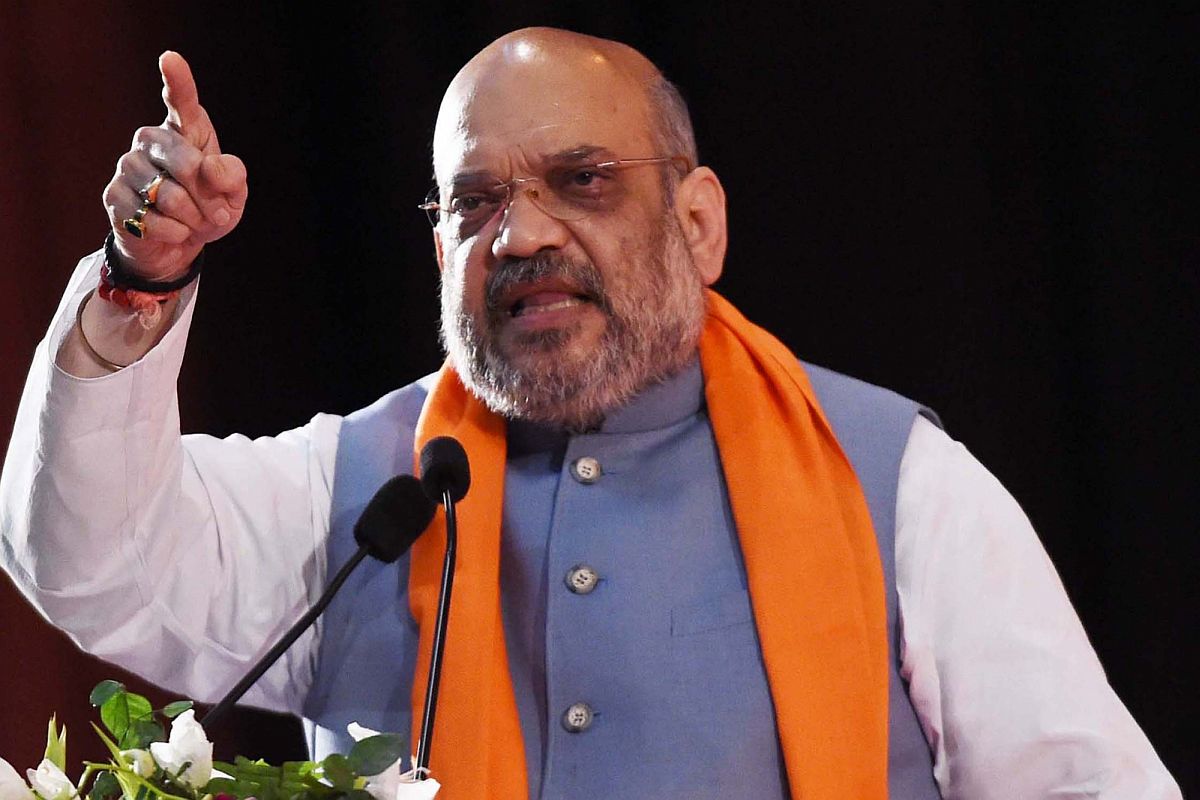What is CAA? Citizenship Amendment Act
Understanding the Citizenship Amendment Act (CAA): A Comprehensive Overview:
The Citizenship Amendment Act (CAA) is a piece of legislation enacted by the Indian Parliament in December 2019. It aims to amend the Citizenship Act of 1955 to provide a fast-track pathway to Indian citizenship for non-Muslim migrants from three neighboring countries: Afghanistan, Bangladesh, and Pakistan. The Citizenship Amendment Act specifically targets individuals belonging to six religious communities: Hindu, Sikh, Buddhist, Jain, Parsi, and Christian, who entered India on or before December 31, 2014, due to religious persecution or fear of persecution in their home countries.
The primary objective of the CAA is to offer refuge and citizenship to minority communities facing persecution in these predominantly Muslim-majority nations. The rationale behind this legislation is rooted in humanitarian considerations, with proponents arguing that it is India’s moral duty to provide shelter to those fleeing religious persecution.
The Citizenship Amendment Act provides a legal framework for granting Indian citizenship to eligible migrants belonging to the aforementioned religious communities. It introduces certain relaxations and exceptions to the existing citizenship laws, allowing for expedited naturalization procedures for eligible applicants. The act stipulates that individuals meeting the specified criteria will be eligible for citizenship by naturalization if they have resided in India for a minimum period of six years, as opposed to the standard requirement of twelve years.
One of the key provisions of the CAA is its exclusion of Muslim migrants from its purview. This aspect of the legislation has been a subject of intense debate and criticism, with detractors accusing the government of discrimination and religious bias. Critics argue that by selectively granting citizenship based on religion, the CAA violates the secular principles enshrined in the Indian Constitution and undermines the country’s pluralistic ethos.
Opponents of the CAA raise concerns about its potential to marginalize and disenfranchise Muslim communities, both within India and in neighboring countries. They fear that the act could exacerbate religious tensions and communal divisions, leading to social unrest and instability. Additionally, critics point out the potential implications of the CAA on India’s demographic composition and its implications for secularism and inclusivity.
The enactment of the CAA sparked widespread protests and demonstrations across the country, with people from various walks of life expressing their opposition to the legislation. The protests, which gained momentum in late 2019 and early 2020, brought to the forefront a range of socio-political issues, including concerns about citizenship rights, religious freedom, and the government’s commitment to secularism.
In response to the protests, the government has reiterated its stance on the CAA, emphasizing that it is a humanitarian gesture aimed at providing succor to persecuted minorities. Government officials have sought to allay fears and misconceptions surrounding the act, asserting that it does not infringe upon the rights of Indian citizens, including Muslims. They have emphasized the need to distinguish between citizenship rights and immigration policies, highlighting the CAA’s specific focus on persecuted minorities seeking refuge in India.
Despite the government’s efforts to clarify the objectives and implications of the CAA, the controversy surrounding the legislation persists. The act remains a subject of legal scrutiny, with several petitions challenging its constitutional validity pending before the Supreme Court. The court’s verdict on these petitions is awaited, and its decision is likely to have far-reaching consequences for the future of the CAA and its implementation.
In conclusion, the Citizenship Amendment Act (CAA) represents a significant development in India’s legal framework governing citizenship rights. While proponents view it as a humanitarian gesture aimed at providing relief to persecuted minorities, critics raise concerns about its potential implications for secularism, religious freedom, and social harmony. As the nation grapples with these complexities, informed dialogue, constitutional scrutiny, and respect for pluralistic values are essential to navigate the challenges posed by the CAA.
BJP Government to Implement CAA Before Elections 2024?

In recent news, reports suggest that the Ministry of Home Affairs is gearing up to announce the regulations for the implementation of the Citizenship Amendment Act (CAA) 2019 before the model code of conduct for the upcoming Lok Sabha elections comes into effect. This move has sparked discussions and debates across the nation regarding the implications and timing of such a decision.
The Citizenship Amendment Act (CAA) has been a contentious issue ever since its proposal by the Prime Minister Narendra Modi-led government. The act aims to provide Indian citizenship to oppressed non-Muslim migrants from neighboring countries such as Bangladesh, Pakistan, and Afghanistan, who entered India prior to December 31, 2014, due to religious persecution in their home countries.
One of the key aspects of the CAA is its intention to fast-track the pathway to Indian citizenship for non-Muslim migrants from these countries. However, the implementation of the act has been met with widespread protests and criticism, particularly in regions like Delhi’s Shaheen Bagh and Assam’s Guwahati. The protests, which initially gained momentum after the act was passed by Parliament in December 2019, have since subsided due to various factors, including the COVID-19 pandemic.

The decision to notify the rules for the CAA before the commencement of the model code of conduct for the Lok Sabha elections raises several questions and concerns. Critics argue that such a move could potentially polarize communities and influence voter sentiments, especially in regions with significant migrant populations. Additionally, there are apprehensions regarding the timing of the announcement, as it comes amidst a politically charged atmosphere in the run-up to the elections.
Proponents of the CAA, on the other hand, view this as a long-awaited step towards fulfilling the government’s commitment to providing refuge and citizenship to persecuted minorities from neighboring countries. They argue that the act is a humanitarian gesture aimed at offering protection to vulnerable communities facing religious persecution.
The announcement of the regulations for the CAA is expected to shed light on various aspects, including the documentation required for applicants to prove their eligibility for citizenship under the new law. Sources indicate that applicants may need to provide evidence of their religious affiliation and the year of their entry into India, among other details.
It is essential to note that the implementation of the CAA has been a subject of debate and legal scrutiny since its inception. Questions have been raised regarding its constitutional validity and its potential impact on India’s secular fabric. The Supreme Court is currently examining several petitions challenging the act, and its verdict is awaited.

As the nation awaits further developments on the implementation of the Citizenship Amendment Act, it is crucial to engage in informed discussions and deliberations regarding its implications. The act’s impact on India’s social, political, and cultural landscape cannot be understated, and any decision regarding its implementation requires careful consideration and scrutiny.
In conclusion, the decision to notify the rules for the Citizenship Amendment Act before the Lok Sabha polls raises pertinent questions about its timing and implications. While proponents argue in favor of providing refuge to persecuted minorities, critics express concerns about the act’s potential to polarize communities and undermine India’s secular ethos. As the nation navigates through these complexities, it is imperative to prioritize dialogue, inclusivity, and adherence to constitutional values.
Beyond the Headlines: Exploring the Nuances of the CAA Implementation
The news surrounding the potential announcement of regulations for the Citizenship Amendment Act (CAA) has sparked a flurry of discussions, each carrying a specific perspective. While the headlines capture the essence of the debate, it’s crucial to delve deeper and explore the nuances surrounding this complex issue.
Beyond the Binary: Understanding the Spectrum of Opinions
The narrative around the CAA often gets framed as a binary – one side supporting the act and the other opposing it. However, the reality is far more nuanced. Here’s a deeper look at the diverse perspectives:
- Supporters: Proponents of the CAA argue that it provides a much-needed pathway to citizenship for persecuted minorities facing religious discrimination in neighboring countries. They view it as a humanitarian act that upholds India’s historical responsibility towards these communities.
- Critics: Opponents raise concerns about the act’s discriminatory nature, highlighting the exclusion of persecuted religious minorities like Ahmadiyyas and Rohingyas. They also express anxieties regarding the potential impact on India’s secular fabric and the potential for misuse of the act.
- Neutral Observers: Many individuals acknowledge the plight of persecuted minorities but raise concerns about the potential socio-political ramifications of the CAA. They advocate for a more comprehensive approach towards addressing issues of persecution and ensuring equal treatment for all citizens.
Navigating the Legal Landscape
The CAA’s implementation faces legal hurdles as several petitions challenging its constitutional validity are being heard by the Supreme Court. The court’s verdict will be crucial in determining the act’s fate and shaping its potential impact.
Beyond Borders: The Regional Dimension
The CAA has a significant regional dimension, with concerns being raised by several states, particularly in the Northeast. These regions have unique socio-cultural and demographic realities, and their concerns regarding the potential influx of new citizens need to be addressed through effective dialogue and policy frameworks.
Moving Forward: A Call for Constructive Dialogue
As the nation grapples with the complexities of the CAA, it’s crucial to move beyond divisive rhetoric and engage in constructive dialogue. This includes:
- Open and honest discussions: Engaging in respectful conversations that acknowledge the diverse perspectives surrounding the issue.
- Fact-based analysis: Utilizing credible sources and avoiding misinformation to understand the potential implications of the CAA implementation.
- Prioritizing constitutional values: Upholding India’s commitment to its core values of equality, inclusivity, and secularism.
By fostering informed and respectful dialogue, we can navigate this complex issue and ensure a future that upholds India’s democratic values and protects the rights of all its citizens.
Resources:
- https://en.wikipedia.org/wiki/Citizenship_(Amendment)_Act,_2019
- https://indianexpress.com/article/political-pulse/caa-rules-likely-to-be-notified-before-poll-code-to-seek-proof-of-india-entry-religion-9184918/
- https://www.indiatoday.in/india/story/centre-citizenship-amendment-act-caa-rules-model-code-of-conduct-lok-sabha-elections-sources-2507820-2024-02-27
- https://timesofindia.indiatimes.com/india/mha-likely-to-notify-caa-rules-before-enforcement-of-model-code-of-conduct-for-ls-polls/articleshow/108047797.cms
- https://www.uscirf.gov/sites/default/files/2020%20Legislation%20Factsheet%20-%20India_0_0.pdf
For more political news: https://waddupindia.in/category/politics/





5 thoughts on “Big News: BJP Government to Implement Citizenship Amendment Act, Before Elections 2024? What is CAA? CAA Amit Shah And More”
Thanks for sharing. I read many of your blog posts, cool, your blog is very good.
Thank you for your sharing. I am worried that I lack creative ideas. It is your article that makes me full of hope. Thank you. But, I have a question, can you help me?
Your article helped me a lot, is there any more related content? Thanks!
Your article helped me a lot, is there any more related content? Thanks! https://www.binance.com/register?ref=IHJUI7TF
Your article helped me a lot, is there any more related content? Thanks! https://accounts.binance.info/bn/register-person?ref=WTOZ531Y